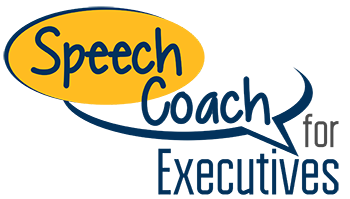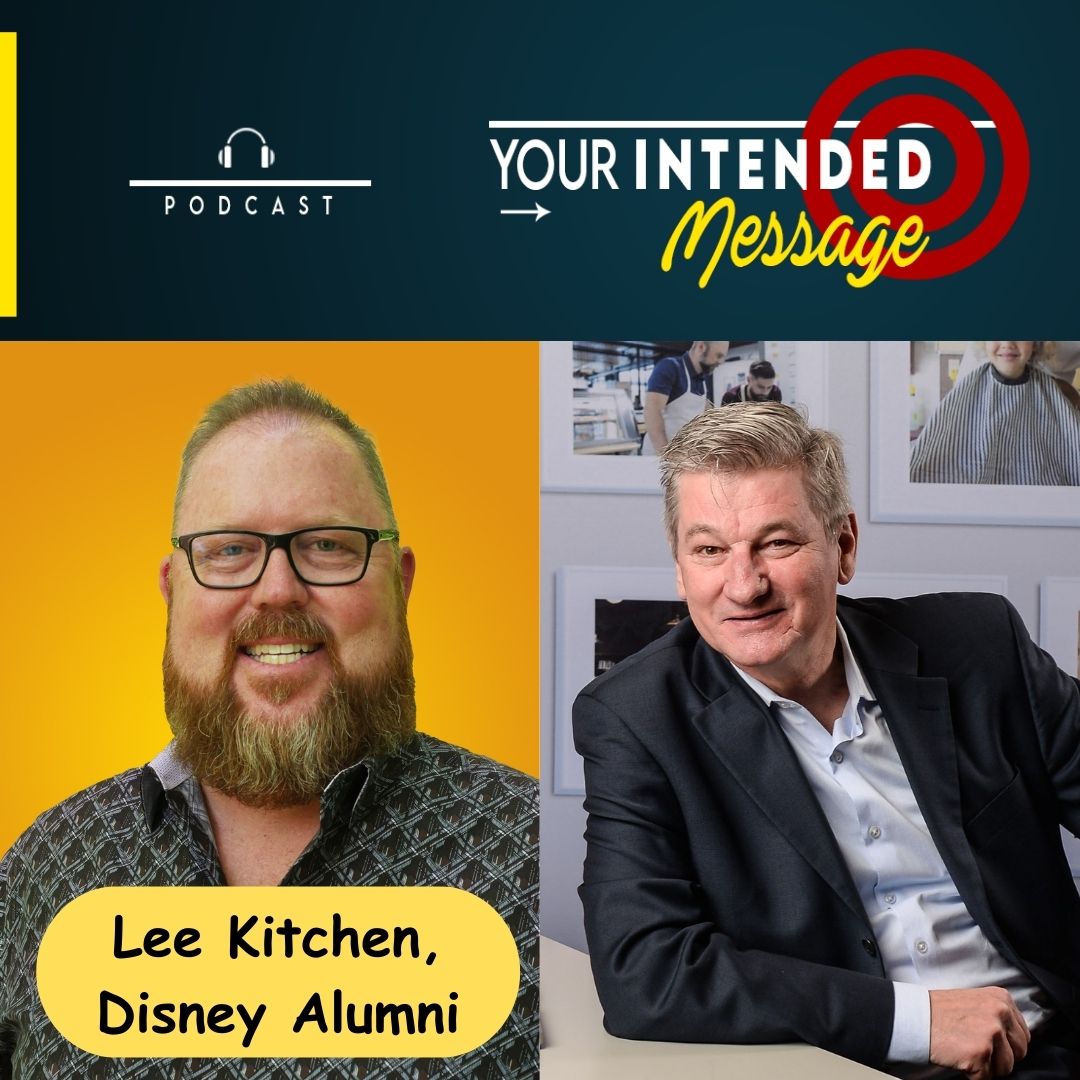Sparking Innovation and Creativity: Lee Kitchen
In this episode of "Your Intended Message", host George Torok interviews Lee Kitchen, a former Disney employee and current innovation catalyst for his own company, Magical Dude Consulting.
Kitchen shares his journey from Disney to his current role, emphasizing the importance of communication, teamwork, and creative problem-solving. He also discusses his approach to fostering creativity and collaboration in business settings. The conversation includes insights on design thinking, the importance of explaining the "why" behind strategies, and the value of looking outside one's industry for inspiration.
Kitchen also shares his other pursuits and gives advice on how executives can encourage creative thinking.
Our Conversation with the Magical Dude
The role of an innovation catalyst (00:08:05)
Lee explains his role as an innovation catalyst, helping people come up with ideas and using design thinking and creative problem solving.
Translating concepts across industries (00:09:47)
Lee discusses how working with different clients from various industries spurs his creative thinking and how he learns from other innovation catalysts in different fields.
Getting out of normal thinking (00:10:42)
Lee emphasizes that his job is to help clients and their teams think differently and get out of their normal way of thinking in order to come up with innovative ideas.
The ideation process (00:16:00)
Lee explains the four steps of the design thinking process: scoping, empathy, ideation, and idea development.
The importance of collaboration (00:19:24)
Lee emphasizes the power of collaboration and recommends inviting a diverse group of people to collaborative sessions for better problem-solving.
Encouraging wild thinking in ideation (00:20:13)
Lee discusses how to stimulate creative and unconventional ideas during the ideation stage, including having a clear human truth from the empathy session.
The brainstorming environment (00:20:21)
Creating an innovative and creative environment for brainstorming by removing the typical conference room setup.
Collaboration and unbiased mediators (00:21:07)
Encouraging collaboration through small group discussions and the inclusion of unbiased mediators.
The importance of ownership and collaboration (00:21:59)
Explaining the importance of ownership and collaboration in generating ideas and ensuring their successful implementation.
The advice from Mickey Mouse (00:31:38)
Mickey Mouse encourages collaboration, authenticity, and genuine leadership to foster creative thinking within a team.
The importance of belief and authenticity (00:31:43)
As an executive, it is crucial to believe in and embody the values of collaboration and creative thinking to inspire your team.
Reminder to embrace fresh thinking (00:32:35)
Lee Kitchen emphasizes the importance of fresh thinking in generating big ideas and encourages listeners to come back for more practical insights.
Unleashing Creativity: A Conversation with Innovation Catalyst Lee Kitchen
As a podcaster, I've had the privilege of interviewing some truly inspiring individuals. One such person is Lee Kitchen, a former Disney employee turned innovation catalyst. In a recent episode of "Your Intended Message," I sat down with Lee to discuss his unique approach to fostering creativity and innovation.
From Disney to Innovation Catalyst
Lee's journey is nothing short of fascinating. He spent 32 years at Disney, starting in operations and guest relations before moving to special events, PR, marketing, and advertising. His love for Disney was evident as he spoke about his lifelong dream to work there.
But what struck me most was his transition from Disney to his current role as an innovation catalyst for his own company, Magical Dude Consulting. Lee's job isn't to come up with ideas himself, but to assist others in thinking differently and finding innovative solutions. He uses design thinking and creative problem-solving methodologies, drawing inspiration from diverse clients in various industries.
The Power of Looking Outside Your Industry
One of the key takeaways from our conversation was the importance of looking outside of one's own industry for inspiration and solutions. Lee suggested that when faced with a challenge, it's helpful to research who else has faced a similar challenge and how they've solved it. This approach broadens one's thinking and helps avoid the trap of "we've always done it this way."
I couldn't agree more. As a communication coach, I've worked with clients from different industries and found that there are ideas and concepts that can be applied across the board. For instance, storytelling in communication works well for consumer goods but may need to be adjusted for a more serious industry like banking.
Design Thinking and Creative Problem-Solving
Our conversation then shifted to design thinking, which Lee described as a structured process for creative problem-solving. He outlined the four steps he teaches: scoping, empathy, ideation, and idea development. He also emphasized the importance of both expansive and reductive thinking.
Fostering Creativity and Collaboration
Lee shared his approach to fostering creativity and collaboration in business settings. He stressed the importance of creating a conducive environment for brainstorming, such as making the space feel more like a living room or bar. He even suggested having a dry erase board in the shower, as many people come up with their best ideas in that setting.
His strategy for collaboration involves dividing a large group into smaller groups and mixing them up throughout the day to encourage different perspectives and ideas. He also recommends inviting unbiased mediators who are not directly involved in the problem or challenge but have a passion for generating ideas.
The Importance of Ownership and Authenticity
When asked if clients expect him to provide the answers, Lee explained that he encourages them to come up with their own ideas. He believes that when people have ownership of the ideas, they are more likely to be passionate about them and ensure their successful implementation. This sense of ownership and authenticity is also crucial in redefining companies and merging businesses.
Mickey Mouse's Advice for Business Executives
Towards the end of our conversation, I asked Lee for advice on how a manager or executive can encourage creative thinking in a meeting with their staff, especially in the post-pandemic era. If they could bring a special guest, like Mickey Mouse, to the meeting, what advice would Mickey give to the business executive?
Lee responded by highlighting Mickey Mouse's qualities as a great friend and colleague. He emphasized that collaboration is key and that as an executive, it is important to lead by example. Executives need to genuinely believe in and authentically demonstrate their commitment to creative thinking. If the executive doesn't believe in it themselves, they cannot expect their team to embrace it.
Wrapping Up
Our conversation with Lee Kitchen was a deep dive into the world of creativity and innovation. His insights serve as a reminder to embrace fresh thinking, look outside our own industries for inspiration, and foster an environment that encourages collaboration and ownership.
For those interested in learning more about Lee and his work, you can visit his website, magicaldude.com. He is available for keynotes, training workshops, and consulting.

